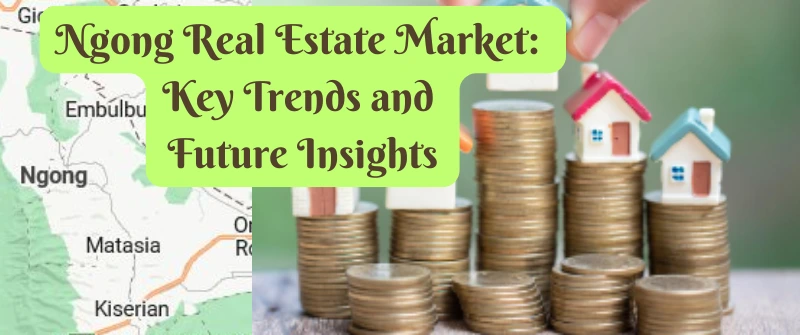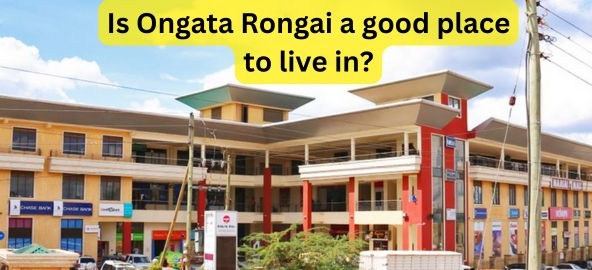Ngong Real Estate Market: Key Trends and Future Insights
Ngong, Kenya, is a scenic town located just southwest of Nairobi. It is nestled along the slopes of the Ngong Hills.
Known for its cool climate, panoramic views, and proximity to Nairobi, Ngong has become an attractive destination for homebuyers, investors, and developers.
The real estate market in Ngong has experienced significant growth in recent years, with both residential and commercial developments on the rise.
A Guide to the Real Estate Trends in Ngong
This article explores Ngong’s key real estate trends, highlighting factors driving demand, opportunities for investment, and challenges facing the area’s real estate sector.
1. Suburban Appeal and Proximity to Nairobi

Ngong has emerged as one of the most sought-after Nairobi suburbs due to its proximity to the capital and its rural, peaceful environment.
Many people choose to live in Ngong while commuting to Nairobi for work.
With the ongoing congestion in Nairobi and rising property prices in the city, Ngong offers a more affordable and serene alternative without sacrificing proximity to the capital.
The availability of land, the town’s relatively lower population density, and scenic views of the Ngong Hills make it ideal for families.
It also makes it preferable for individuals seeking a peaceful lifestyle while still being close to Nairobi’s urban amenities.
2. Rising Demand for Affordable Housing
One of the primary real estate trends in Ngong is the growing demand for affordable housing, especially in the suburbs of Ngong town like Matasia, Kibiko, and Kimuka.
Therefore, as Nairobi’s housing market becomes increasingly expensive, many middle-income earners and first-time homebuyers are looking to areas like Ngong for more budget-friendly options.
Developers have recognized this demand, and as a result, more housing projects targeting middle-class buyers are emerging.
These developments include both standalone houses and gated communities that offer basic amenities like security, water, and electricity.
Gated communities in particular have gained popularity in Ngong, offering affordable yet modern housing options for families looking to own homes in a secure environment.
3. Emergence of Gated Communities
As with many other satellite towns around Nairobi, gated communities are becoming more prevalent in Ngong.
These secure residential estates offer a variety of home options, from bungalows to townhouses, and attract both homebuyers and investors.
The appeal of gated communities lies in the provision of shared amenities such as playgrounds, gyms, and security services.
Moreover, these communities are often designed to offer a sense of community and exclusivity, making them attractive to families and professionals looking for a serene and secure environment to live in.
In the coming years, the trend of gated communities is expected to continue, driven by demand for secure, modern living spaces.
4. Land Investment Opportunities
Ngong has become a prime area for land investment due to its proximity to Nairobi and the availability of relatively affordable land.
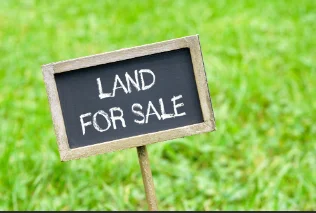
Many investors are purchasing large plots of land with the intention of either reselling them at a higher value or developing residential and commercial properties.
As infrastructure continues to improve, including the ongoing expansion of Ngong Road and the potential for future transport links, land prices in Ngong are expected to appreciate significantly.
Investors who buy land in Ngong today can expect substantial returns in the future, especially as Nairobi continues to expand outward and more people look to settle in satellite towns.
5. Commercial Real Estate Growth
The commercial real estate sector in Ngong is also experiencing growth. As the population increases, the demand for commercial spaces such as shopping centers, office buildings, and hospitality establishments has risen.
Local entrepreneurs and developers are capitalizing on this demand by constructing modern commercial buildings that cater to the growing business community in the area.
New shopping centers, supermarkets, and retail shops are popping up to serve the growing population, while office spaces are being developed to accommodate businesses looking for affordable alternatives to Nairobi’s CBD.
The growth of commercial real estate in Ngong is expected to continue as more people move to the area and require local services and businesses.
6. Infrastructure Development
Like any other town in Kenya or elsewhere, infrastructure development plays a crucial role in shaping the future of real estate in Ngong.
Over the past few years, the Kenyan government has invested in improving key roads connecting Ngong to Nairobi and other surrounding towns.
The expansion of Ngong Road, which links the town to Nairobi, has significantly reduced commuting times, making it easier for people to live in Ngong while working in the city.
Additionally, plans for improved public transport systems, such as the proposed expansion of the Karen-Ngong road, could further enhance Ngong’s appeal to both homebuyers and investors.
As infrastructure improves, the accessibility of Ngong will increase, boosting demand for real estate in the area.
7. Increased Demand for Rental Properties
As more people move to Ngong for work or lifestyle reasons, there has been a growing demand for rental properties.
Many young professionals and families who cannot afford to buy homes are opting to rent, creating opportunities for landlords and property developers to meet this demand.
Rental prices in Ngong are still relatively affordable compared to Nairobi, which has made it a preferred destination for those seeking budget-friendly accommodation.
For instance, Kibiku and Matasia have relatively low rental costs and many people are considering them as budget options.
On the other side, Vet Ngong, Zambia, Lemiso Road, and Ngong Town have higher rental income compared to other places.
In light of that, property developers are responding to this demand by constructing modern rental apartments and homes that cater to both short-term and long-term tenants.
With the influx of residents, rental yields are likely to remain strong in the coming years, making it an attractive option for real estate investors.
8. Sustainable and Eco-Friendly Housing
There is a growing awareness of sustainability and eco-friendly housing in the real estate market, and Ngong is no exception.

Developers are increasingly incorporating green building practices into their projects, such as energy-efficient designs, water-saving technologies, and the use of sustainable construction materials.
These eco-friendly homes are attractive to buyers who are environmentally conscious and want to reduce their carbon footprint.
As environmental concerns continue to rise globally, the demand for sustainable housing options in Ngong is expected to grow.
Developers who focus on delivering eco-friendly homes will have a competitive edge in the market.
9. Potential for Tourism and Hospitality Development
Ngong’s location near the Ngong Hills and its scenic beauty present unique opportunities for tourism and hospitality real estate development.
The Ngong Hills are a popular tourist destination for hiking and sightseeing, attracting both local and international visitors.
There is potential for the development of lodges, hotels, and Airbnb properties to cater to the growing number of tourists who visit the area.
Additionally, the tranquil environment and scenic views make Ngong an attractive location for holiday homes and vacation rentals.
Investors looking to tap into the tourism market can capitalize on Ngong’s natural beauty by developing hospitality-oriented real estate projects.
Challenges facing Ngong’s Real Estate Market
Despite the rapid growth and development of Ngong’s real estate market, the area faces several challenges that could impact its long-term potential.

These challenges, if not addressed, may hinder the market’s growth and sustainability.
Here are some of the key issues currently affecting Ngong’s real estate sector:
1. Infrastructure Limitations
While Ngong has seen improvements in infrastructure, particularly with the expansion of Ngong Road, some parts of the town still suffer from inadequate infrastructure.
Poor road networks in certain areas make it difficult to access properties, especially during the rainy season.
Additionally, issues such as insufficient drainage systems, inconsistent electricity supply, and unreliable water provision can make some parts of Ngong less attractive to potential homebuyers and investors.
The lack of well-maintained roads and basic utilities remains a significant obstacle for both residential and commercial real estate development. Without further infrastructure improvements, the potential for the real estate market to thrive in certain areas may be limited.
2. Land Ownership Disputes
One of the major challenges facing the real estate market in Ngong is the issue of land ownership disputes. In some cases, unclear land titles and fraudulent land sales have made it risky for individuals and developers to purchase property in the area.
Disputes over land ownership often lead to legal battles that can drag on for years, resulting in financial losses for buyers and developers.
Land ownership challenges not only discourage investment but also complicate the process of developing land, as potential buyers are wary of fraudulent transactions and unclear titles.
Resolving these disputes and improving land registration systems will be crucial to fostering confidence in Ngong’s real estate market.
3. Rising Land Prices
As Ngong grows in popularity, land prices have been steadily increasing, especially in prime areas close to the main roads or with scenic views of the Ngong Hills.
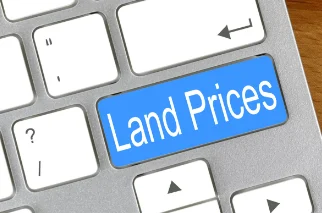
While this presents opportunities for landowners and investors, it has also made property less affordable for middle- and low-income buyers.
Rising land prices can lead to speculation, where investors hold on to land in hopes of selling it at a higher price later.
This speculative activity can drive prices even higher, making it difficult for ordinary citizens to afford property.
Additionally, the high cost of land may deter developers from building affordable housing, limiting housing options for many.
4. Limited Access to Affordable Housing
The demand for affordable housing in Ngong has increased as more people move to the area in search of cheaper living alternatives to Nairobi. However, the supply of affordable homes has not kept pace with this demand.
While a few developments are catering to middle-income earners, many housing projects in Ngong are targeted toward higher-income buyers, leaving low- and middle-income earners with limited options.
The lack of affordable housing not only affects potential buyers but also limits the overall development of the area, as more people are priced out of the market.
Addressing this issue will require government policies and incentives to encourage developers to focus on affordable housing projects.
5. Water Scarcity and Environmental Concerns
Water scarcity is a major issue in many parts of Kenya, and Ngong is no exception. The town experiences frequent water shortages, which can affect the quality of life for residents and the attractiveness of the area to potential buyers.
In some areas, residents have to rely on private water vendors or boreholes, adding to the cost of living.
Additionally, the rapid development of real estate in Ngong raises concerns about the environmental impact, particularly in areas near the Ngong Hills.
Unregulated development could lead to deforestation, soil erosion, and depletion of natural resources. Environmental considerations must be integrated into the planning and development of real estate projects to ensure the sustainability of the area.
6. Inconsistent Planning and Zoning Regulations
Ngong’s real estate market is also affected by inconsistent or unclear planning and zoning regulations. In some areas, there has been a lack of enforcement of zoning laws, leading to unregulated development.
This can result in poorly planned neighborhoods with overcrowding, lack of essential services, and unsustainable land use.
Proper urban planning is essential for ensuring that Ngong’s growth is structured and sustainable. Clear and enforced zoning regulations will help developers create well-planned residential and commercial areas, while also preserving the town’s natural beauty and resources.
7. Competition from Other Satellite Towns
Ngong is one of several satellite towns around Nairobi experiencing rapid growth, and it faces competition from other areas such as Kitengela, Athi River, and Rongai.
These towns also offer proximity to Nairobi and are competing for the same pool of buyers, renters, and investors.
In some cases, other satellite towns may have better infrastructure, more affordable land, or more developed housing options, making them more attractive than Ngong.
This competition may slow down the growth of Ngong’s real estate market, particularly if neighboring towns continue to improve their infrastructure and housing offerings.
To remain competitive, Ngong will need to address its infrastructure challenges and offer more affordable housing options.
Prospects and Future of Real Estate in Ngong

With its proximity to Nairobi, growing infrastructure, and scenic views of the Ngong Hills, the area holds immense potential for future real estate growth.
The future of real estate in Ngong will likely be shaped by several key factors:
1. Continued Infrastructure Development
The improvement of roads, such as the expansion of Ngong Road, has already enhanced connectivity between Ngong and Nairobi.
As infrastructure projects continue, including better road networks, electricity supply, water systems, and public transport, Ngong will likely become even more attractive to both residential and commercial investors.
The presence of better infrastructure will encourage more developers to invest in real estate projects, and it will also improve property values over time.
2. Continued Rise of Gated Communities
There has been an increasing trend toward gated communities and planned residential developments in Ngong. These estates offer secure, well-planned living environments that cater to middle- and upper-income buyers.
The demand for such communities is expected to grow as more people seek safer, quieter, and more organized living spaces away from the hustle and bustle of Nairobi.
Developers will likely focus on creating more of these developments to meet the rising demand.
3. Expansion of Affordable Housing Projects
The Kenyan government has been focusing on addressing the housing deficit by promoting affordable housing projects, especially in satellite towns like Ngong.
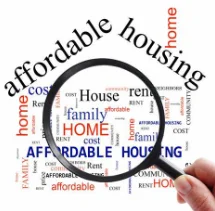
As the population grows and urbanization spreads, the need for affordable housing will continue to rise.
Developers may tap into this opportunity by constructing low-cost housing units to cater to low- and middle-income earners, which will open up new opportunities in Ngong’s real estate market.
4. Commercial and Retail Growth
As more people move to Ngong, the need for commercial spaces such as shopping centers, office buildings, and business hubs will increase.
The growth of commercial real estate will support the residential market, making Ngong a self-sufficient area where people can live, work, and shop without commuting to Nairobi.
The demand for mixed-use developments, where residential, commercial, and retail spaces coexist, will likely rise in the coming years.
5. Sustainable Development
With growing awareness of climate change and environmental conservation, there is increasing demand for sustainable and eco-friendly housing developments.
Ngong’s proximity to the scenic Ngong Hills and its natural beauty will likely drive developers to create housing projects that emphasize green building practices, energy efficiency, and environmental preservation.
Future developments could include features such as solar energy systems, water harvesting solutions, and green spaces to appeal to environmentally conscious buyers.
6. Tourism and Vacation Homes
Ngong’s beautiful landscape and cooler climate make it an attractive location for holiday homes and vacation rentals.

The growing interest in domestic tourism in Kenya could lead to a rise in the development of vacation homes and Airbnb-style properties in the area.
The tourism potential, combined with the natural beauty of the Ngong Hills, may encourage investors to explore real estate opportunities focused on the hospitality industry.
7. Increasing Property Values
As demand for property in Ngong continues to grow, property values are expected to increase steadily over time.
This will make Ngong a prime location for real estate investment, particularly for individuals or developers looking to benefit from capital appreciation.
The expected rise in land and home prices will create opportunities for both short-term and long-term investors.
8. Smart City Development
There is a growing trend of smart city developments across the globe, and Ngong could benefit from such innovation.
As technology becomes an integral part of urban planning, future real estate developments in Ngong may integrate smart home technologies, internet of Things (IoT) infrastructure, and sustainable city planning.
This would not only make living more convenient for residents but also increase the attractiveness of the area for tech-savvy investors.
Final Word
The real estate market in Ngong, Kenya, is experiencing rapid growth and transformation, driven by factors such as proximity to Nairobi, affordable housing demand, infrastructure development, and investment in both residential and commercial properties.
While there are challenges to overcome, the future of real estate in Ngong looks bright, with opportunities for investors, developers, and homebuyers alike.
As the town continues to grow and urbanize, Ngong’s real estate sector will remain a key player in the Nairobi metropolitan area, offering a mix of affordable housing, land investment opportunities, and commercial development prospects.
Whether you are looking to buy, rent, or invest, Ngong is a destination worth considering for its potential long-term growth and value.
